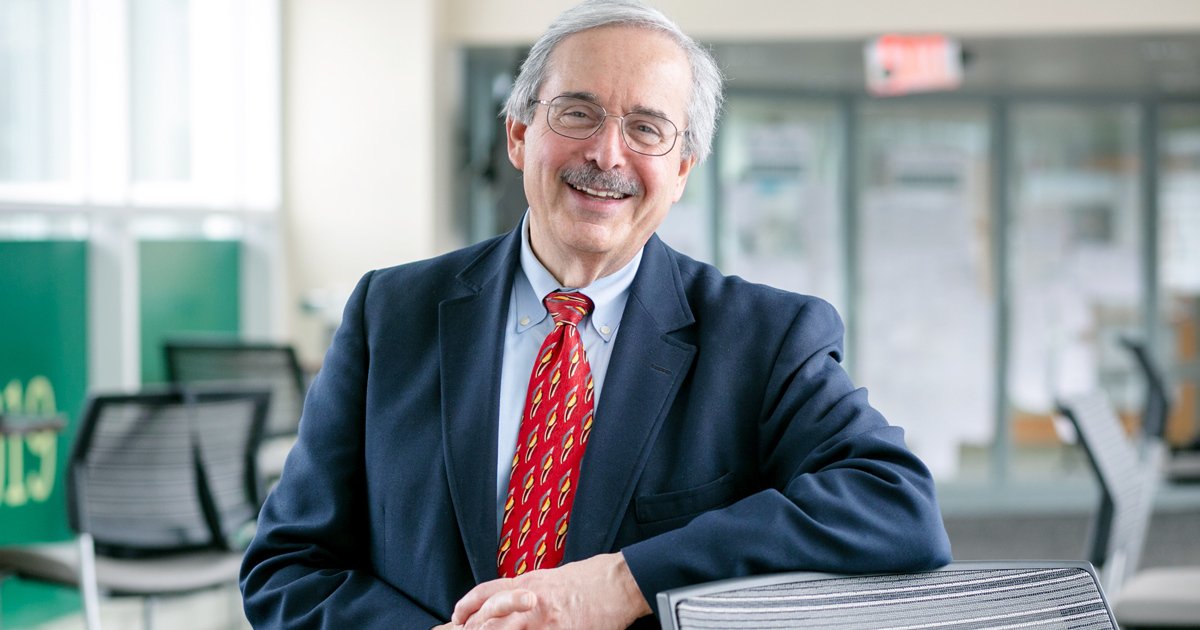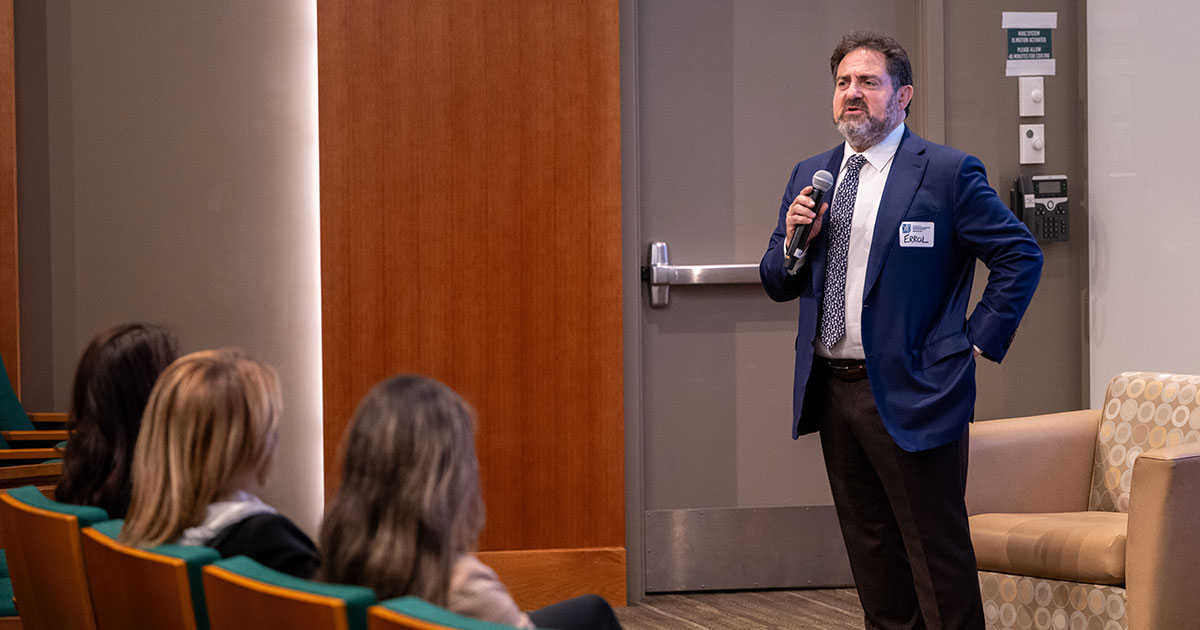Making the Babson Experience Meaningful, One Coaching Session at a Time

If experiential and immersive learning are cornerstones of Babson College, thank Joseph Weintraub for helping set that foundation.
Weintraub, a management professor who has been teaching at Babson for 45 years, is an organizational psychologist, author, and consultant. He’s also the founder and faculty director of the Coaching for Leadership and Teamwork Program (CLTP) and faculty director of the Management Consulting Field Experience (MCFE) program, both designed to help undergraduates succeed in their career paths. Through CLTP, now in its 23rd year, students are confidentially coached one on one by trained volunteers (alumni and friends of Babson) in leadership, teamwork, listening, oral communications, decision making, and ethics. Students in the MCFE program work in teams as consultants for area companies to tackle business challenges, giving them a leg up on real-world endeavors. MBA students act as project leaders. “It’s been fulfilling,” he says, “to do this and see what impact we’ve had on our students.”
We caught up with Weintraub recently to talk about the impact these programs have had on Babson students, and what the future holds.
Q. Why did you want to start a student coaching program at Babson?
A. I was talking with a student in my office years ago—he was a good guy, kind of rough around the edges—and he said, “I know I don’t exactly treat people well, but that’s how we treat people in our family business, and I’m going to continue to do that.” He became my poster child when thinking about what kind of student we want to produce at Babson. The intent of the program was to provide feedback to students on what today we would call emotional intelligence, or EQ, so when they leave Babson, they have some level of proficiency in working with other human beings.
Q. Why is it essential to introduce a program like this at the undergraduate level?
A. Years back I saw colleges putting on seminars for seniors on how to interview for jobs. I thought, why not provide this early on? If there’s an area you need to work on, it’s a little late to tell you that when you’re out the door. This way they’ve got three-plus years to work on these skills. We wanted to make sure students had a safe place where they could work with people who were not there to grade you, but to help you.
Q. In the MCFE program, teams of students work with large and small companies on specific projects, writing papers and making presentations. Students can also go the internship route, too, to gain experience. What advantages does MCFE offer?
A. When students are interviewing for jobs, one thing they can say is that they’ve been part of a semester-long consulting course, where they were responsible for working with a company on a real project, putting a report and presentation together, and having real data. Internships are sometimes a one-person operation; often interns don’t necessarily get feedback, and instead, they may be doing grunt work.
In MCFE, 50 percent of the grade is delivering value to the client. The other 50 percent is how they operate within the team, and how they demonstrate their emotional intelligence. We want the students to understand that it’s not just what you do, but how you do it.
Q. Why don’t more business schools adopt these types of programs?
A. It’s a herculean task administratively to do these programs, but our faculty is behind them, and we have an administration who believes in what we’re doing. This is something that the school has committed to and it’s an important part of who we are as an institution. This builds into our experiential learning culture.
Q. What will be the evolution of the programs moving forward?
A. This semester, for the first time, we have a Blended [Learning] MBA student from San Francisco managing one of the MCFE teams virtually. She came in the first two weeks to meet the students, and came back to meet with the clients. She’ll come back again during and at the end of the project. It’s a beta test for us to see if we can provide the same type of high-touch experience that you would have if the person were on campus. We’re also producing a video library of topics relevant for our students and project leaders.
With CLTP, every semester we need 500 coaches, which means we need almost 700 to sign up, because there’s about a 20 percent drop-out rate. It would be great if we could work with alumni coaches from Miami or Puerto Rico or India. Two years ago I experimented with virtual coaching sessions, but the technology wasn’t quite there yet. How do we improve our technology, and is it appropriate for what we’re trying to do here? We will also be revising our materials to address the issues of today and tomorrow. That’s what we’re looking at.
Another one of our aspirations is to establish a coaching center at Babson. Our vision is to create a place where teams or individuals can work with an expert coach on improving their skills in working with others.
Q. Have changes in the business world made experiential programs like these even more important today?
A. Without question, they are more important today. The concept of emotional intelligence has achieved much more acceptance, and there’s more data showing that what makes you successful in business isn’t necessarily more IQ, but more EQ. At some level you’re smart enough. Typically, innovation and creativity come from working with others. These skills become more important with a more diverse workforce where you have to understand people’s differences.
Posted in Community



